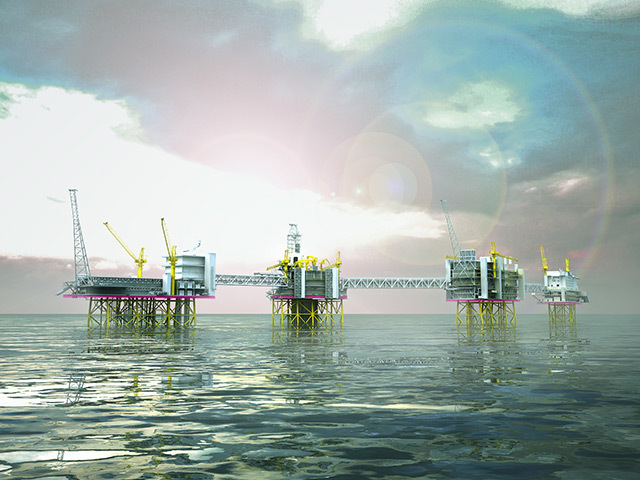
Delays to a one of the biggest North Sea projects could cost thousands of jobs and more than £3billion.
Norwegian lawmakers have ramped up their pressure for oil companies to begin powering their North Sea fields from land.
An alliance has formed amongst the opposition parties in a bid to reduce greenhouse-gas emissions.
The group has asked the Conservative-led government to force Statoil and its partners to supply an alternative for its Johan Sverdrup field which would illustrate a power from land solution for four North Sea oil fields.
Speaking to reporters in Norway, Terje Aasland, a Labor Party member of the Energy and Environment Committee, said: “We’re going to ask the government that the license terms for Johan Sverdrup require an area solution that covers Gina Krog, Edvard Grieg, Ivar Aasen.”
Sverdrup is one of Norway’s biggest ever oil finds in the past 30 years with an estimated 2.9billion barrels locked beneath the surface.
Statoil has suggested a two-phase solution which would power from land without the use of nearby fields.
However, Statoil said any delay to the project could cost billions of pounds. It stressed it was still unclear what impact laying cables between the installations would have on timings.
A spokesperson said: “A majority in the Norwegian Energy and Environmental Committee today presented a proposal to the Storting which involves the supply of power from land to the entire Utsira Height.
“Power from land to all of Utsira is one of three options in the concept study for Johan Sverdrup. Statoil and partners are recommending a two-phase solution from an industrial, financial and environmental standpoint.
“The committee spokesman, who represents the Labour Party, communicates an intention of not creating a situation that will delay Johan Sverdrup. It is important for Statoil that the scheduled progress in developing the Sverdrup field is maintained. One year’s delay on Sverdrup will entail a pre-tax loss, in present value, of NOK 20 billion kroner.
“Together with its partners, Statoil will consider whether the consequences of this proposal could lead to delay. It is unclear how the requirement to lay cables between the installations from the Sverdrup start-up phase will impact on the concept chosen and the project’s progress.”
Norway’s minority government, which is made up the Conservative and Progress parties, has criticised the call, labelling it ‘a new type of political risk’.
Suppliers for the project have also spoken out against it.
Aker chief executive Officer Oeyvind Eriksen, who has a stake in supplier Kvaerner, told Bloombeg ‘thousands of jobs are at stake’.
He said: “If you put a delay of Johan Sverdrup on top of the weaker market and the contracts that were lost about a year ago, that could have dramatic consequences.
“Thousands of jobs are at stake.”
Johan Sverdrup field is located in the Norwegian continental shelf 140km west of Stavanger.
The £11billion project is expected to yield more than 500,000 barrels of oil per day when it comes on line and anticipated to return healthy dividends for the next 50 years.
